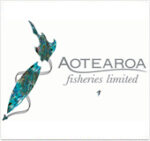Materials Handling & Logistic Show to run alongside Foodtech Packtech
With less than 8 weeks to go the countdown has begun for this year’s largest combined trade only industry event – the Materials Handling & Logistics Expo (MHL) running alongside Foodtech Packtech (FTPT). Event organisers, XPO Exhibitions have already confirmed in excess of 200 exhibiting companies across both shows and are expecting thousands of industry attendees across the three days. This is a unique industry opportunity to view latest products and cutting edge technologies across food & beverage manufacturing, food and industrial packaging as well as materials handling and logistics solutions. This year’s Materials Handling and Logistics Show already has 50 exhibiting companies – a number that’s well up on the previous event in 2013. We’ve had a great deal of interest from forklift providers right through to 3PL providers. “MHL is under new management and back alongside FTPT where it all began more than 10 years ago. Food specific materials handling and logistics solutions have always been popular exhibitor features within FTPT so the formal alignment of MHL is simply helping the combined show grow. The materials handling and logistics side of things completes our ‘New Zealand pasture (or sea) to plate’ capability story which is so important to realise our export market potential.” Says Tony Waite Events Director of XPO. “Now we’ve got MHL onboard we’ll also be cross referencing our database of close to 300,000 industry professionals registered for other successful trade shows we run – to send out relevant invites to a wide variety of industry interested in materials handling and logistics solutions. “Examples will include general engineering and manufacturing, homewares importers, retail and even the construction industry – anyone storing, moving or distributing good in New Zealand or internationally.” The organisers are quick to point out that Foodtech Packtech itself has grown a great deal […]








